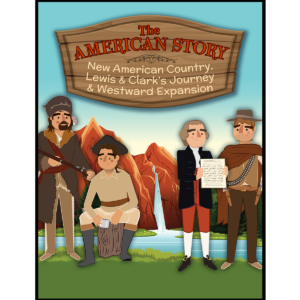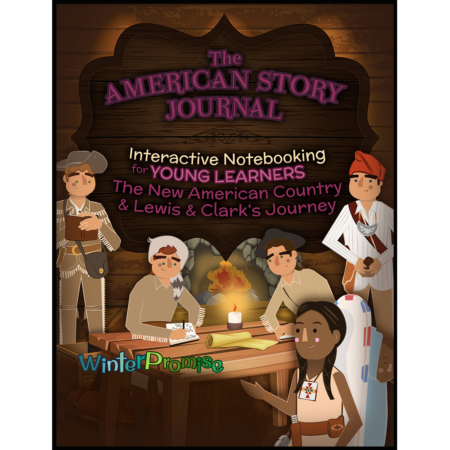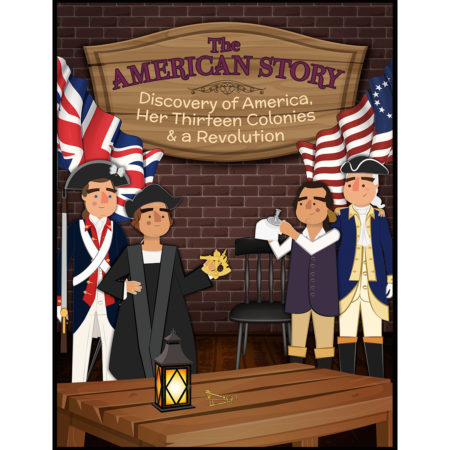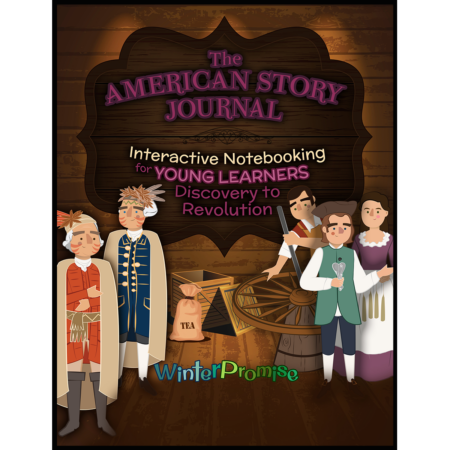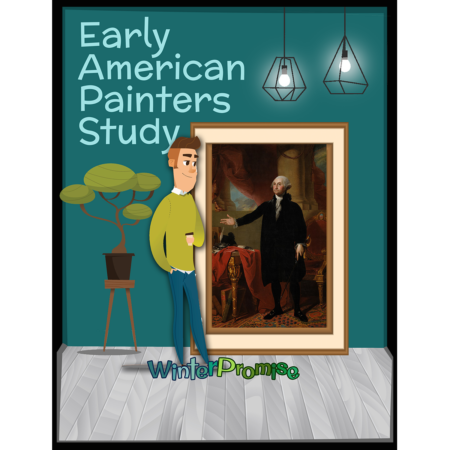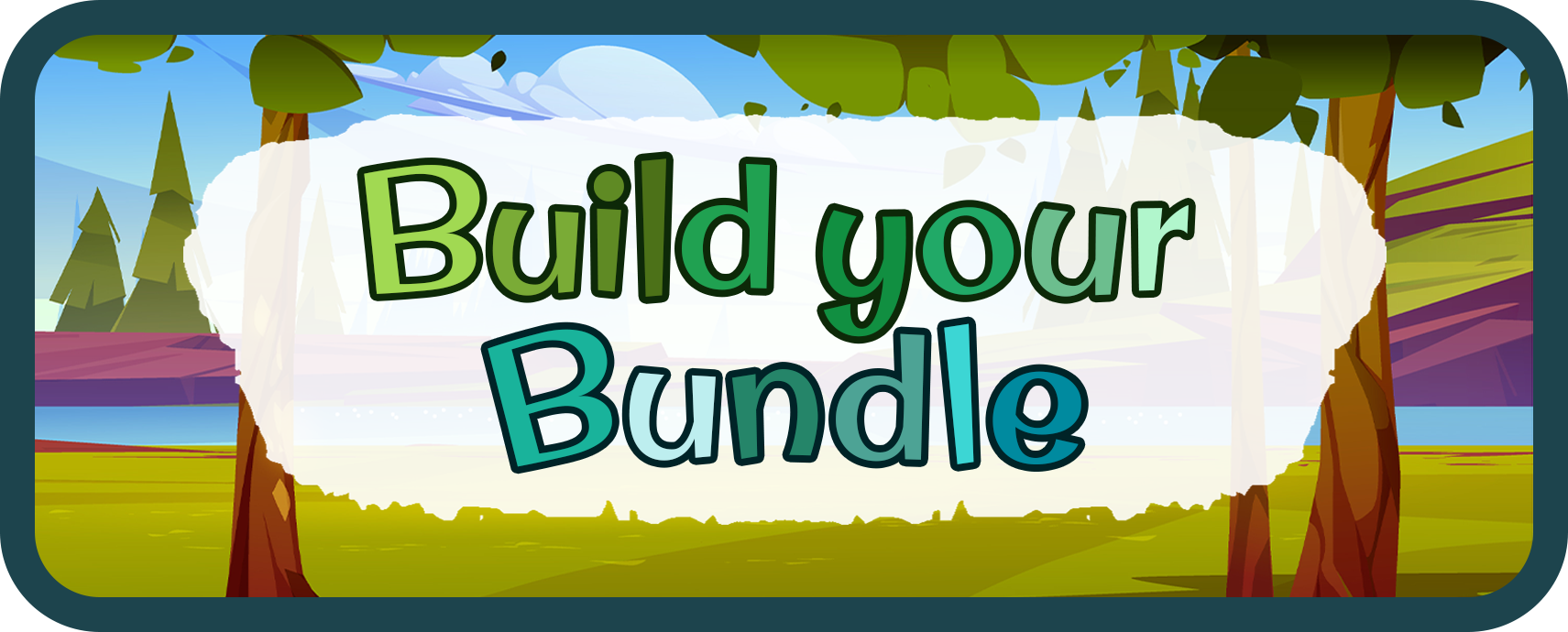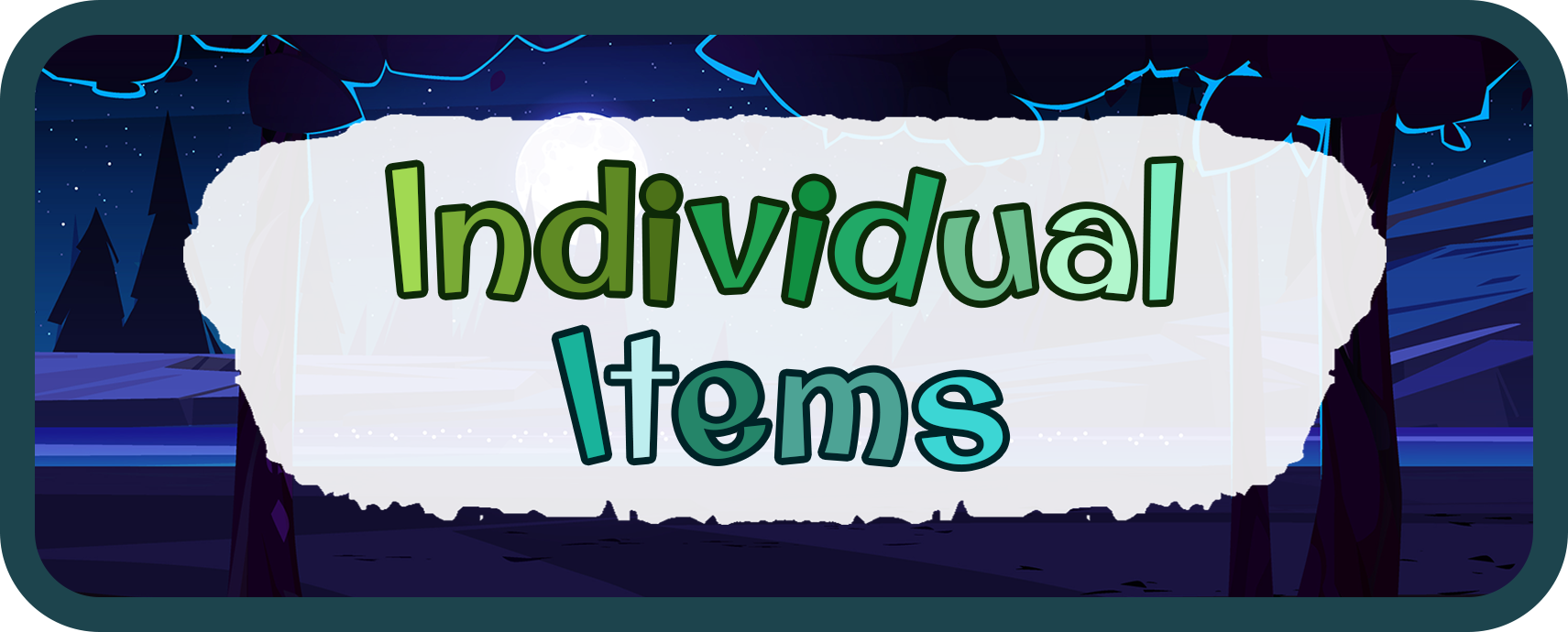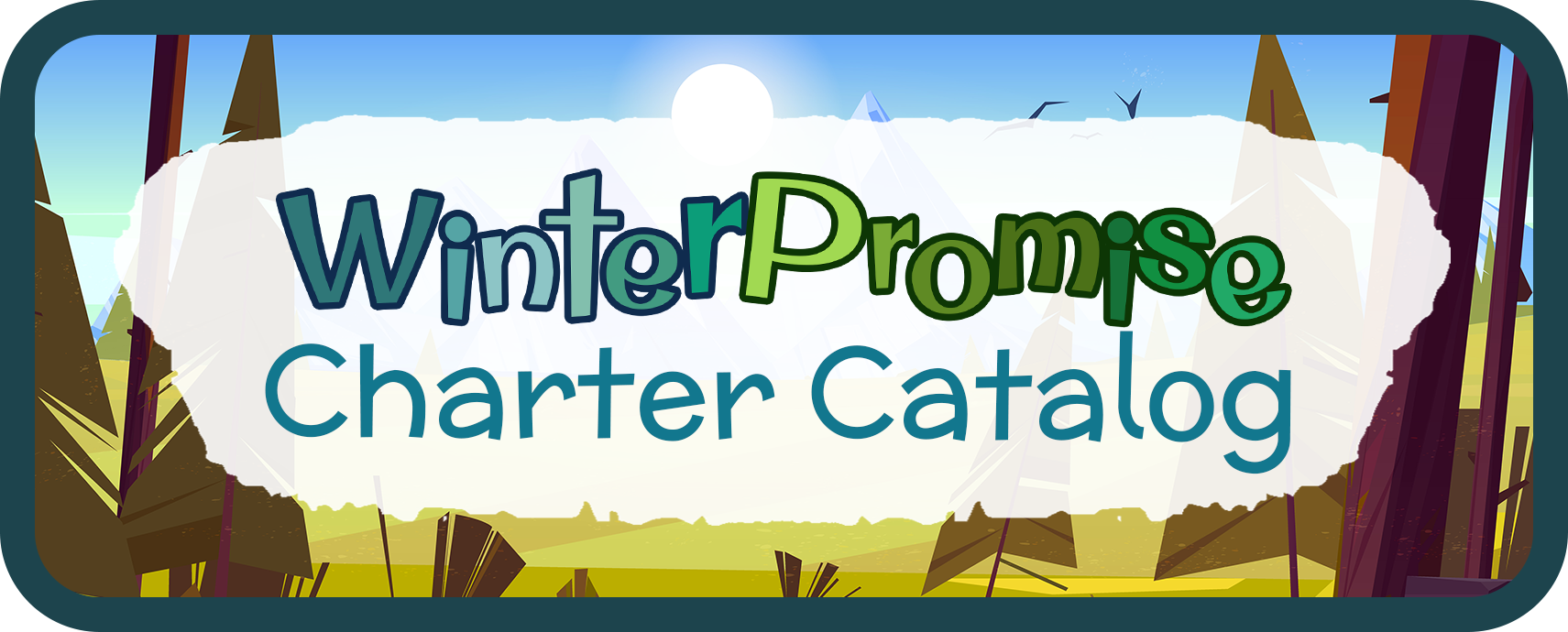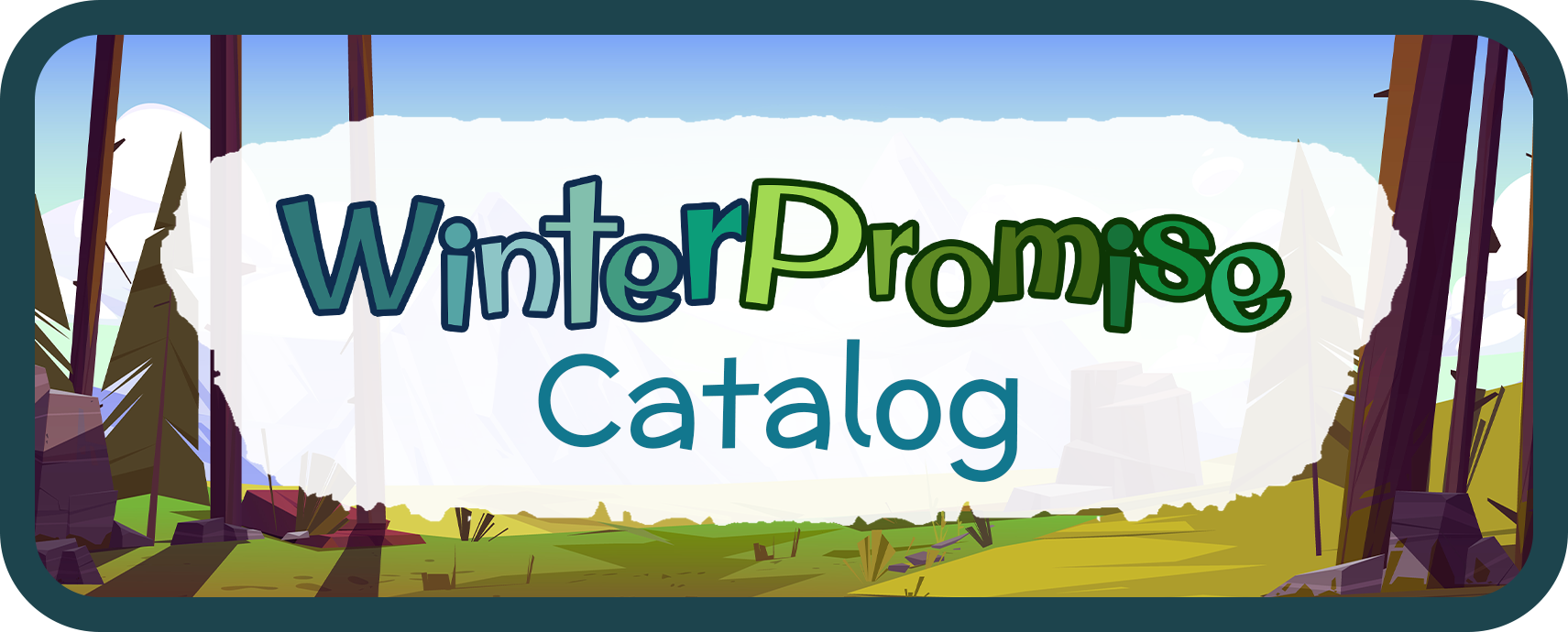The American Story Part 2: A New Country, Westward Expansion and Lewis & Clark
In the second book, you’ll sit beside congressional delegates as they come together to try and form a new government. See how every move the first presidents made created the presidency we know so well today.
What makes this such a great resource?
#1 You’ll Be Reading a Book!
Color, Color, and More Color! – Every page of this illustrated book has beautiful pictures for your family to enjoy as it is read together.
Detailed & Historically Accurate Illustrations – Each illustration in this book is carefully researched so your family will see how early Americans wore and what they created.
- Native American Indians – each tribe represented in their clothing
- Native American Houses – different regional Native American homes shown like wigwams, tepees, longhouses, and others
- Revolutionary War Uniforms – Minutemen, Rangers, British soldiers, Hessian soldiers, and more a shown wearing their own uniform.
- Lewis & Clark’s Keel Boat – see the ship that rode the Missouri River.
- Colonial Printing Press – see what a colonial printer would have used to print newspaper and other pamphlets
Full Color Two-Page Spreads – as you read this book together as a family you’ll feel like you’re inside a Dorling Kinderley book. You’ll visit places like Valley Forge, the Boston Massacre, at camp with Lewis and Clark, who fought for who during the French & Indian War, and many more!
“Go Inside” Illustrations – look inside a Native American tepee, an early colonial submarine, colonial courthouse, French & Indian War fort, a log cabin, and more!
Large In-Depth Maps – as you learn about the discovery of this new continent, colonial trade, and expanding west maps are essential! We’ve provided many maps to help your student understand the movement of early American history. Here is a list of a few:
- 13 Colonies Map
- Moccasin Map (this map shows the different moccasins worn in each region)
- Triangle Trade Map
- Paul Revere’s Ride
- Lewis & Clark’s Expedition West Map
#2 Written to Make History & Science Memorable!
Combination of Topical & Chronological Coverage of Material – this book like our many other WinterPromise exclusives covers material in chronological order but covers people, historical events, and movements topically. This can be seen from an overview of the history below:
Link to Weekly Overview of Topics
As you can see these different time periods and topics are arranged in the order they happened. As you go deeper, week to week, students will have a main focus that week of learning different events that all occurred in a similar place. In week 13, Revolutionary Boston, we look at the revolutionary events that helped start the Revolutionary War. These events happened over the course of many years but are all linked by occurring in the same city. This arrangement makes it not only easy for tell the events that happened but it also helps students to see the movement of radical thought in Boston from its beginnings to its climax with the opening battles of the Revolutionary War.
This is a perfect example of how the combination of chronological and topical can effectively teach and make history easy to remember for students. This method makes it easy for students to see how history and movements unfolded.
Unique, High Interest Topics – this book will draw your kids in with fun and interesting topics from American Story 1. These high-interest topics are essential to our program. Each week there are kid-engaging topics related to the weekly topic, which are are most easily remembered by students. These topics then become the starting point for learning. Students will remember these topics first and then it recall the other information they learned that week as well. This method makes it easy for your student to recall more history, culture, and even the movement of history more easily with these high-interest flag topics sprinkled throughout the program.
- How did Native Americans use every part of a Buffalo?
- What kind of jobs did colonists have? What tools did they use?
- How do wolves communicate?
- How did Benjamin Franklin’s discoveries, experiments, and inventions change things for colonists and science?
- What was life like in a Continental army camp?
- What was it like to be a pony express rider?
- What was it like to meet new Native American tribes?
- How did women help during the Revolutionary War?
- How was Beaver pelts used? What was it like to be a spy during the Revolutionary War?
- What was it like to live like a colonial gentleman? And many more. . .
Easy to Read Writing – This book to with WinterPromise’s adherence to quality and excellent writing easily communicates to children of all ages. This title is written to be easily understood and followed by both younger and older students. The wonderful color pictures and high interest topics draw in younger students making the history memorable. Older students will love the in-depth topics and the amount of content. There is plenty to read and learn so older students will have much to study and love!
Key Historical Movements & Transition Passages – part of WinterPromise’s adherence to quality is the to cover historical movements and thoughts that influenced that period of history. These topics are sprinkled throughout at key points in the study to help you student grasp the historical period. They are written in such a way for younger students to listen in and enjoy along with their older siblings, who will grasp the less concrete ideas. These more difficult topics are written in long-distance look so students can see the topic as a whole. Some of these transition topics, historical movements, and changing thoughts include: how the ocean between the colonies and Europe created an American character, Age of Enlightenment, the Tea Trade, road to American Revolution, Westward Expansion, formation of our government, and the Louisiana Purchase.
Biographies – a look at the lives of exciting and key figures in American history make for history easier to remember for students of all ages. Students will also learn how these people lived and looked at the world they lived in. Some of the historical figures you’ll learn about include: Pocahontas, Daniel Boone, George Washington, Thomas Jefferson, Samuel Adams, Molly Pitcher, Lewis and Clark, Harriet Tubman, American presidents, and many others.
Looking at Early American Culture – as you study early American history in this program you’ll also get to learn about their daily lives and culture. Below are some of the amazing things your family will learn.
- Colonial Holidays
- How a Colonial Town worked
- Life in a Military Camp
- Life on the Prairies
- Johnny Appleseed
- Native North American Clothing
- Colonial Clothing
- Colonial Tea Time & Customs


